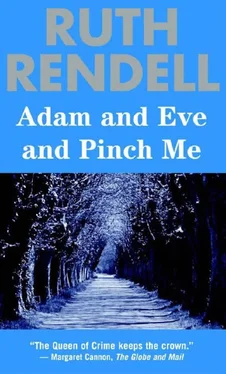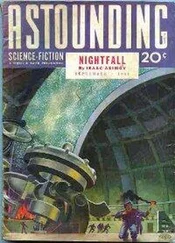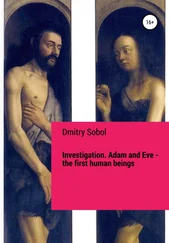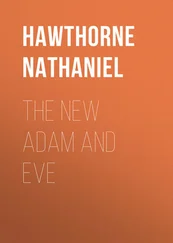If she turned and walked away the old woman would follow her. For the first time, she wanted a ghost to speak, in the midst of her fear she wanted to hear what kind of a voice Mrs. Lewis had. “Say something.”
As she spoke, the ghost vanished. Not immediately but like smoke disappearing into the neck of a bottle. And then she was gone and the room empty.
WHEN JIMS ARRIVED in Glebe Terrace, Natalie was waiting for him in a bedroom in a flat on the other side of the street. It belonged to Orla Collins, whom she’d met at the dinner party. Orla had had some qualms at first but these vanished when Natalie explained she was spying on a member of Parliament who’d married his wife bigamously while at the same time carrying on an affair with a man on the opposite side of Glebe Terrace. Thursday was the third evening she’d been there, but she wasn’t surprised he hadn’t turned up the previous night. Even Jims might jib at making an assignation with a lover on his wedding day.
In her own words, Zillah had spilled the beans. When Natalie arrived on Wednesday afternoon she was still in the white suit she had worn for her wedding. “I thought you might not be able to take a photograph of me,” Zillah said, “on account of your union or whatever, so I did a Polaroid.” As Natalie was looking at it, she said, “And now I’m going to tell you everything.”
She had. It was the best story Natalie had secured in fifteen years of journalism. For all that, she didn’t quite dare take Zillah’s word for Jims’s adventures with Leonardo Norton. That would have to be confirmed. She sat in a wicker armchair by the window at Orla Collins’s, eyeing, not for the first time, the photographs Zillah and Jims had taken on their honeymoon. His were of little use to her, for they were only of island views but for a single shot of Zillah bathing in the Indian Ocean. Hers, on the other hand, were a revelation. She admitted to having taken them because even then she felt jaundiced by this mock marriage. Jims and a young man whose face was turned away lay on adjoining recliners, they sat side by side on spread towels on a beach and, best of all, most damning of all, sat at a table alfresco, Jims’s hand resting on the young man’s thigh. It was interesting that Jims was always smiling at him and once into the camera, while Leonardo contrived to hide his face from view. These photographs would make it an easy matter to recognize the MP when he came down Glebe Terrace or stepped out of a car. How would he come? As time passed, as her watch told her seven-thirty, eight, eight-fifteen, Natalie considered the possibilities. Sloane Square was only three stops on the Circle Line from Westminster. He could take the tube and then a cab. Or a cab all the way. Reputedly, he had a large private income. He could drive himself and, since it was past six-thirty, park anywhere on a single yellow line. The idea of a bus Natalie dismissed as too plebeian for the likes of Jims. As for a bicycle…
At twenty minutes to nine he came by the only means she hadn’t considered. On foot. He was even better-looking in the flesh than in the Maldives pictures. Natalie, like many women taking a view never shared by homosexual men, said to herself, What a waste! To her delight, he produced a key from his pocket and unlocked Leonardo Norton’s front door. A blind was down in the window she took to be that of a living room but an upstairs window was uncovered except for an inch or two of curtain showing on either side. Any picture she might take Natalie had grave misgivings about, but she was ready with her camera. Within minutes she almost wished she hadn’t brought it with her, for the shot she got no newspaper editor would dare to use. In the two-foot-wide gap between the curtains Jims and Leonardo were locked in a passionate embrace.
Almost immediately Leonardo, dressed only in a pair of red and white candy-striped briefs, drew the curtains. Natalie remained. She was resolved to stay the entire night in that chair if necessary, eating the sandwiches she’d brought and sipping from the half-bottle of Valpolicella.
But at eleven-thirty Orla wanted to go to bed. “There’s no point in you staying,” she said. “He always stops the night.”
If the police had never reappeared in Holmdale Road, Michelle might have extended her forgiveness of Fiona to forgetfulness. She might have taken the advice Matthew gave her and excused her neighbor on the grounds of her grief, her shock, and the almost unbearable pressure she had been under. After all, she and Matthew had shown their support by accompanying Fiona to the funeral of a man they had both disliked and distrusted. But the police came back on Friday morning to say they’d been unable to find any confirmation of the Jarveys’ presence on the Heath on that crucial afternoon. On the other hand, a car of the same make and color as theirs had been seen parked on a meter in Seymour Place, W1, at the relevant time, and Seymour Place, as they must know, was only a short distance from the Odeon, Marble Arch.
Matthew said, in a cool, almost detached voice, “That was not our car.”
“The witness wasn’t able to take the number.”
“If he or she had, it would not have been the number of our car.”
Michelle, glancing at her husband and then down at her own plump hands that lay in her bulky lap, marveled that anyone looking at the two of them could even momentarily suspect them of committing a crime. A fat (if no longer obese) woman of forty-five who couldn’t climb half a dozen steps without gasping and-as much as she loved him, she had to put it like this-a poor skeleton crippled by his own grotesque phobia. That was the last realistic and level-headed thought she was to have for days.
She drew in her breath when the woman asked her, “Can you give us something firmer to establish that you were in your car on the Heath at that time?”
“What kind of thing?” She heard her own voice grown thin and hoarse.
“Or even in Waitrose? The staff don’t remember you there. Well, they remember you”-Michelle thought she detected the suspicion of a grin-“but not which day. Apparently, you often go there.”
The implication was plain, that she and Matthew had purposely planned frequent visits to the supermarket in order to confuse witnesses about the only day they weren’t there.
“And about the Heath, Mrs. Jarvey?”
“I told you, there were other cars there with people in them, but I didn’t know any of them and they didn’t know us.”
After the officers had gone, she clutched hold of Matthew and looked piteously into his face. “I’m so frightened, I don’t know what to do. I thought-I thought, Fiona’s got us into this, she ought to get us out.”
“What does that mean, my darling?”
“I thought, we could ask her to say she saw us on the Heath, she drove up there as soon as she got home-I mean, she could say she got home an hour sooner than she did-and saw us and spoke to us. Or-and this would be better-she could get a friend of hers to say she saw us, someone from down the street, she knows the woman at a hundred and two, I’ve seen them together, and she could-”
“No, Michelle.” Matthew was gentle as always but tough too, as he used to be long ago. “You’d be inciting her to perjury. It would be wrong. And apart from the morality of it, you’d be found out.”
“If she can’t do a little thing like that for us I’ll feel like never speaking to her again.”
“You don’t know. Maybe she would do it. You haven’t tried her-and, Michelle, you’re not going to.”
“Then what will become of us?”
“Nothing,” he said. “Innocent people don’t find themselves in court on a murder charge,” though he was by no means sure of that. “You’re being silly. This is simply hysteria.”
Читать дальше











